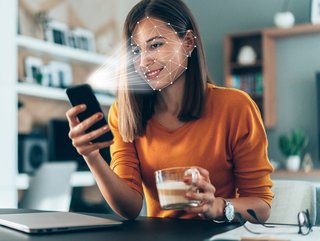
Biometric data is unique to each individual, therefore biometric technology is often used to identify individuals, giving rise to biometric authentication as a form of identification and access control. Computers can search and store such data in seconds to identify, authenticate, and make decisions on whether or not to allow access.
Today, there are many applications available that use facial recognition software functioning on artificial intelligence (AI) and deep learning technologies, and some even use augmented reality (AR).
The facial recognition market was estimated at roughly US$5bn in 2021 and is projected to grow to US$12.67bn by 2028. Looking at this growing trend of face recognition software, we take a look at 10 of the top face recognition apps.
10. Face First
This facial recognition allows users to identify people from a distance. It is an ideal online face app for law enforcement, military, retailers, and transportation centres.
The platform enables a full range of surveillance, customer engagement, mobile, access control and desktop forensic face recognition capabilities. FaceFirst offers a robust API and SDK for integration into a variety of systems and platforms.
9. Railer
Railer app is a face recognition attendance app and a mobile attendance system. Through this app, educational and corporate organisations can manage the attendance of their students and employees, and keep a check on their attendance using face recognition.
The app also offers analytics, push notifications with timely attendance reports to the HR/teachers, along with managing leaves such as sick, annual, emergency, public holidays, etc.
8. TrueKey
A product of McAfee Security, True Key is based on biometric technology, which uses face recognition software or fingerprint to protect and manage your passwords. It encrypts your data using the AES-256 encryption method, along with multi-factor authentication, to protect your data from third-party interventions.
7. BioID
BioID is a German biometrics company, founded in 2007. Developing proprietary software for face liveness detection and facial recognition, the portfolio also includes PhotoVerify.The software biometrically verifies document ownership for remote identity proofing. All technologies are consolidated in the BioID Web Service, and offered as a cloud service via APIs.
BioID applications range from anti-spoofing for existing facial recognition systems to verification of ID document ownership, e-signing and multi-factor-authentication for login scenarios.
6. MojiPop
MojiPop, developed by Eureka Studios based in the UK, provides customised avatars of its users with the help of free facial recognition software. It offers a wide range of animated stickers that users can select based on their moods and feelings from their interactive keyboard.
You take a selfie and create your personalised avatar. The app provides hundreds of different features, such as hairstyles, expressions, backgrounds, and moods that you can choose from to customise your avatar. It is also available in 58 languages, which makes it accessible to a diverse user base.
5. Face2Gene
Face2Gene is a healthcare app developed by FDNA, an American artificial intelligence company.
Specifically designed for healthcare professionals, the app allows doctors to easily diagnose patients for genetic disorders and their variants. The app uses Deep Learning algorithms that are based on syndrome gestalts. These gestalts are built on syndrome-specific computation-based classifiers. The scanned photo of a patient is converted into de-identified facial descriptors which are then compared with syndrome gestalts to identify similarities with the top-matched syndromes having similar morphologies. AI, on the other hand, facilitates possible phenotypic traits and genes to assist in identifying the possible syndrome.
4. DigiPass
Developed by OneSpan, Digipass features a two-factor authentication that uses fingerprint and facial recognition to secure devices from malware attacks.
This feature enables the user to scan a QR-code from the website that they intend to use. This is the first step of the two-factor authentication process. It is followed by the second step – a facial scan which users can do through their device’s camera. The scan is compared with the stored biometric template using machine learning algorithms in their app.
DigiPass for Apps is available as an optional feature, for both Android and iOS and Windows and Linux, which can be incorporated into any application to strengthen digital security.
3. AppLock
AppLock allows apps to unlock using facial recognition features as well as voice recognition. The software ensures that only a user can access their personal information, social media apps, and financial accounts.
The face and voice work as passwords and are the biometric keys that can unlock your apps. You can create a backup authentication option which can be useful in cases where your voice or facial recognitions is not possible. You will never be locked out of your mobile device or applications.
2. Blippar
Blippar, founded in 2011, is a leading technology content company specialising in Augmented Reality (AR), with the vision to make AR accessible for all.
Blippar uses Deep Learning computer vision, a form of artificial technology. Using a smartphone camera, it recognises relevant images and real-world objects. Through Augmented Reality, it displays digitally designed content as an overlay that you can enjoy and interact with.
You can scan your surroundings and the app will tell you interesting things about it. The app contains information on many different things so you can scan the thing you want to get information for and Blippar will provide every piece of information on that subject.
1. Luxand
Founded in 2005, Luxand is a private hi-tech company that provides a broad range of facial feature recognition solutions.
The company’s products and technologies are used by biometric identification and security companies, banks, the entertainment industry, medical and cosmetic industries. Police organisations and the military are using Luxand technologies to identify people and locate personal records by facial photographs. Government, municipal and commercial entities are employing our products in their document workflow for automating the process of entering facial pictures in a database.






